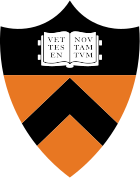 7
7 


Princeton University is a major research university with a profound and distinctive commitment to undergraduate education. Whether through independent study, student-initiated seminars, or lectures in emerging fields such as neuroscience, Princeton students have the flexibility to shape dynamic academic programs that prepare them for leadership and lives of service. Through its groundbreaking financial aid program, Princeton ensures that all qualified students who are accepted can afford to attend the University. Chartered in 1746, Princeton emphasizes a curriculum that encourages exploration across the disciplines, while providing a core academic experience. Its faculty are known throughout the world and it is not unusual for students to learn from Nobel laureates, Pulitzer Prize winners, and MacArthur fellows. Students benefit from small class sizes and one-on-one advising with faculty, particularly while doing independent work such as the senior thesis. More than 75 percent of student classes have fewer than 20 students. The intellectual endeavors of Princeton's approximately 5,260 undergraduates are supported by a range of first-rate academic resources, from specialized libraries to state-of-the-art laboratories, and even an art museum. In 2017, Princeton opened a new arts center that highlights artistic creativity as a key part of the academic experience. The academic options at Princeton give students flexibility in pursuing their intellectual interests while working toward either the Bachelor of Arts or the Bachelor of Science in Engineering. Students also may earn certificates from among 55 interdisciplinary programs, creating combinations of academic interests. For example, a student might major in physics while also earning a certificate in Latin American studies. Academic pursuits often emphasize civic engagement, such as through the Service Focus program that consists of a funded summer internship and service-related courses. Princeton also encourages students to participate in international learning experiences through study abroad, internships, and summer global seminars. The University is located in the town of Princeton, which has a diverse population of 30,000 residents and is situated between New York City and Philadelphia, with rail service to both cities. Princeton is a residential university that provides a welcoming environment, advising services, cultural and educational events, intramural sports, and more. As a residential community, Princeton provides housing for all four years. Princeton's six residential colleges offer settings where students quickly can become involved in campus activities. Students can participate in more than 300 student-run organizations, the arts, civic engagement, student government, religious groups, and athletics.
 7
7 
| Subject | Rank |
|---|---|
Mathematics | 1 |
Atmospheric Science | 1 |
Physics | 2 |
Political Sciences | 3 |
Sociology | 5 |
Telecommunication Engineering | 7 |
Earth Sciences | 8 |
Economics | 8 |
| Undergraduate Programs |
|---|
Anthropology |
Architecture |
Art and Archaeology |
Astrophysical Sciences |
Chemical and Biological Engineering |
Chemistry |
Civil and Environmental Engineering |
Classics |
Comparative Literature |
Computer Science |
Computer Science |
East Asian Studies |
Ecology and Evolutionary Biology |
Economics |
Electrical Engineering |
English |
French and Italian |
Geosciences |
German |
History |
Mathematics |
Mechanical and Aerospace Engineering |
Molecular Biology |
Music |
Near Eastern Studies |
Operations Research and Financial Engineering |
Philosophy |
Physics |
Politics |
Psychology |
Religion |
Slavic Languages and Literatures |
Sociology |
Spanish and Portuguese Languages and Cultures |
Woodrow Wilson School of Public and International Affairs |
| Graduate Programs |
|---|
Anthropology, |
Applied and Computational Math, |
Art and Archaeology, |
Astrophysical Sciences, |
Atmospheric and Oceanic Sciences, |
Biology at Princeton, |
Chemical and Biological Engineering, , , M.Eng. |
Chemistry, , M.S. |
Civil and Environmental Engineering, , , M.Eng. |
Classics, |
Comparative Literature, |
Computer Science, , |
East Asian Studies, |
Ecology and Evolutionary Biology, |
Economics, |
Electrical Engineering, , M.Eng. |
English, |
Finance, M.Fin |
French and Italian, |
Geosciences, |
German, |
History of Science, |
History, |
Mathematics, |
Mechanical and Aerospace Engineering, , , M.Eng. |
Molecular Biology, |
Music, |
Near Eastern Studies, , M.A. |
Neuroscience, |
Operations Research and Financial Engineering, , |
Philosophy, |
Physics, |
Politics and Social Policy, |
Politics, |
Population Studies,(in Demography) |
Princeton Plasma Physics, |
Psychology, |
Quantitative Computational Biology, |
Religion, |
School of Architecture, , |
Slavic Languages and Literatures, |
Sociology and Social Policy, |
Sociology, |
Spanish and Portuguese Languages and Cultures, |
Woodrow Wilson School of Public and International Affairs, , M.P.A., M.P.A.-J.D., M.P.P. |